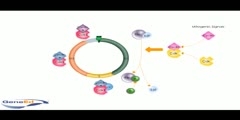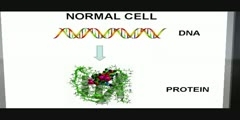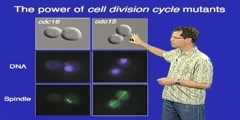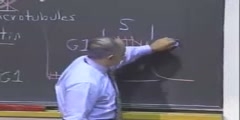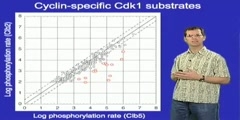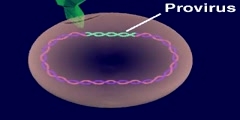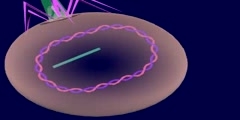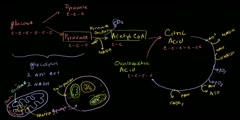Cell Cycle
A eukaryotic cell cannot divide into two, the two into four, etc. unless two processes alternate: doubling of its genome (DNA) in S phase (synthesis phase) of the cell cycle; halving of that genome during mitosis (M phase). The period between M and S is called G1; that between S and M is G2. So, the cell cycle consists of: G1 = growth and preparation of the chromosomes for replication; S = synthesis of DNA [see DNA Replication] and duplication of the centrosome; G2 = preparation for M = mitosis. When a cell is in any phase of the cell cycle other than mitosis, it is often said to be in interphase.
Channels: Cell Biology Others
Uploaded by: NicolaTesla ( Send Message ) on 16-11-2010.
Duration: 3m 1s
